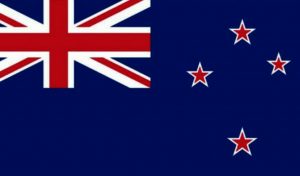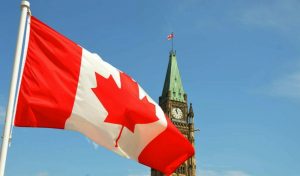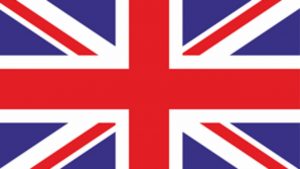Top countries with a flexible constitution: Constitution is etymologically connected to Latin word constitutio. A constitution refers to a set of rules and regulations which a group, organisation or country choose to be managed by. Is a set of fundamental principles and precedent that serve as a legal framework for an organ or country stating how it will be governed.
The Constitution is the grundnorm of all the laws in the country as all other statutes derive their legitimacy from the constitution. It also explains how power is apportioned and regulated, how elections are conducted, how government agencies interact, where sovereignty is located, how amendments are made, and what rights citizens have.
There are different classifications of a constitution. It could be written or unwritten, it could be rigid or flexible. A Written Constitution is a Constitution that has been systematically and thoroughly written down and contained in a single text. A written constitution is a carefully crafted and well-thought-out system. A constituent assembly or a convention can construct it. A codified constitution is another name for it. Unwritten constitutions are those in which a government’s core ideas and powers are not written down or contained in a single official text, but are documented despite not being included in a single book.
A rigid constitution however, requires a unique amendment method. Most rigid constitution are written.
A flexible Constitution is usually unwritten and it’s amendment of the flexible constitution requires no special procedure. There is no separation between ordinary and constitutional law in a flexible constitution. Both laws are enacted in the same way and come from the same source. The constitution in this case may be written or based primarily on negotiations.
The rigid codified constitution is most common among nations of the world but there are some countries that whose body of laws are flexible. That is, the mode of amendment is not technical and the constitution is treated like any other law.
Recommended: List of countries with an unwritten Constitution
List of countries that practice a flexible constitution
Examples of the countries with flexible constitution includes:
1. New Zealand: The New Zealand constitution is a collection of laws and principles that regulate the country’s political system. New Zealand, unlike many other countries, does not have a single constitution. Although the New Zealand constitution is a mixture of written and unwritten sources, it is an uncodified constitution, frequently referred to as a “unwritten constitution.”

The Constitution Act of 1986, as well as a slew of other acts, orders in Council, letters patent, judicial decisions, Treaty of Waitangi principles, and unwritten traditions and practices, play a key role. There is no distinction between ordinary statutes and “constitutional law” on a technical level.
Most of the time, the New Zealand Parliament may execute “constitutional reform” merely by enacting acts of Parliament, and so has the right to amend or repeal parts of the constitution. However, the Electoral Act of 1993 stipulates that certain clauses can only be changed by a referendum.
This flexibility makes New Zealand’s constitution flexible, but it also means that a government could abuse its power.
Also see: Countries with the most effective judicial system
2. Canada: The written acts and unwritten norms that make up the Canadian constitution. It lays out the country’s political system as well as the rights of all citizens and residents.

The constitution is made up of the Canada Act 1982, the Constitution Act 1867, and their amendments, as well as the acts and orders listed in Section 52(2) of the 1982 Constitution Act. Constitutional conventions, royal prerogative by the Crown, and unwritten principles are all sources of unwritten constitutional law. The interpretation and application of the constitution are the focus of Canadian constitutional law.
Also see: Countries with the best education system in the world
3. Saudi Arabia: Article 1 of the country’s constitution provides that Saudi Arabia is a sovereign Islamic state in the Arab world. Islam is its religion. The Holy Qur’an, Almighty God’s Book, and the Sunna (Traditions) of the Prophet form its foundation (PBUH). The Kingdom’s official language is Arabic. The capital of Saudi Arabia is Riyadh. What this means is that, the Holy Qur’an, Almighty God’s Book, and the Sunna (Traditions of the Prophet) form its foundation (PBUH).

In Saudi Arabia, Sharia law remains supreme, with the Quran and Sunnah serving as the country’s constitution. Before rendering a decision, judges frequently consult the Hanbali School’s six medieval books.The Islamic academic consensus, which is interpreted by the country’s courts, is also included in Sharia. Uncodified Sharia regulations, on the other hand, frequently lead to significant variations in interpretation and application.
Recommended: Most corrupt African countries 2022
4. Israel: Between 1995 and 2006, during the presidency of Aharon Barak, the Supreme Court president, the country’s common approach and consideration of the state’s constitution was the Basic Laws of Israel. According to the proclamation of the state’s independence on May 14, 1948, Israel’s constitution should have been ready by October 1, 1948.

The choice in the 1950s to legislate the constitution chapter by chapter resulted in a debate over the state’s purpose and identity. A formal constitution has been proposed in the form of several draft constitutions.
The state of Israel is governed by an unwritten constitution and the Harari Decision, which was ratified by the Israeli Constituent Assembly on June 30, 1950. Israel has also passed a number of fundamental legislation relating to human rights and government operations.
Recommended: Advantages and Disadvantages of an unwritten Constitution
5. United Kingdom: The United Kingdom is the oldest country with a flexible constitution. The United Kingdom’s constitution is built on a system of laws and concepts that define its people and country. The connection between the people and the state, as well as the functions of the legislature, judiciary, and executive, are all addressed in the constitution.

The British Parliament is sovereign. There isn’t a law that parliament can’t change. In an ordinary legislative procedure, the British Parliament has the authority to pass, amend, or repeal any constitutional law, as both constitutional and ordinary laws are regarded equally.
There is no obvious separation between fundamental or constitutional laws and non-constitutional legislation. Constitutional changes in the United Kingdom can be made in the same way that ordinary laws are adopted. The courts have no review authority. They are unable to overturn any act of parliament.
Recommended: Differences between federalism and unitary system of government
Flexible constitution doesn’t mean that the country has no written down documents containing the laws so the argument that it’s hard to make reference to it does not hold water. What makes a constitution flexible is the ease of amendment and that the constitution is not raised above any law.
It is treated as equal as any other document of legislation. A merit for flexible constitution is because it is a great manifestation of a country’s progress, a flexible constitution is very important for its development. Because of its versatility, it does not obstruct advancement. At the same time, it safeguards the constitution’s fundamental ideals.

Edeh Samuel Chukwuemeka, ACMC, is a lawyer and a certified mediator/conciliator in Nigeria. He is also a developer with knowledge in various programming languages. Samuel is determined to leverage his skills in technology, SEO, and legal practice to revolutionize the legal profession worldwide by creating web and mobile applications that simplify legal research. Sam is also passionate about educating and providing valuable information to people.